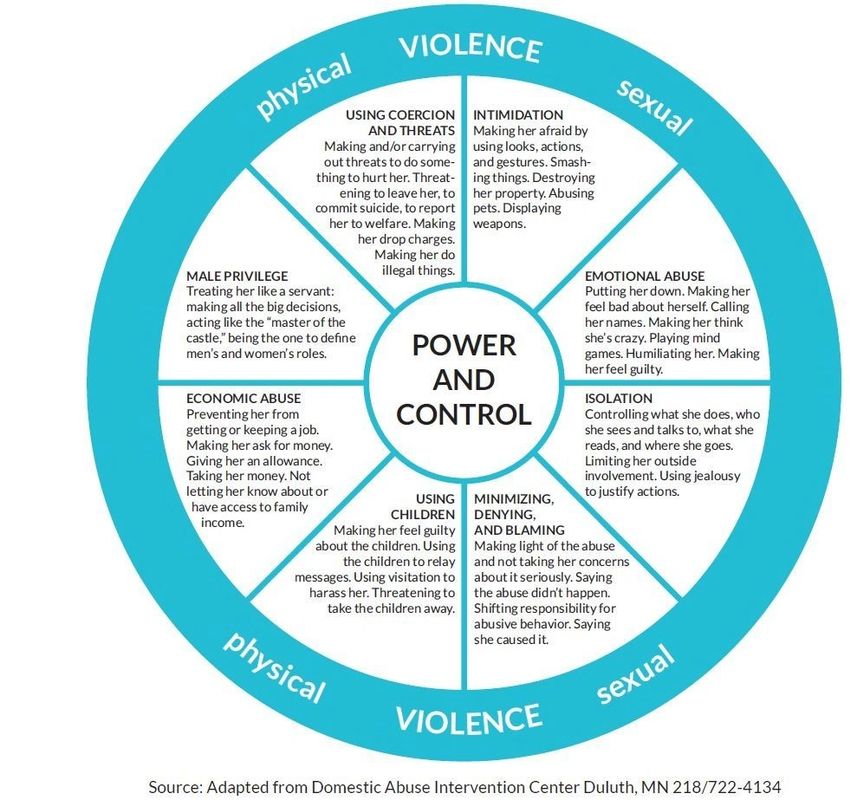WHAT IS ABUSE?
Toll Free: 888-621-0047
Abuse is not always obvious
and it can be confusing for victims.
Below are some topics that
can help us recognize patterns
and warning signs of abuse.
Click the topics below for more information.
Warning Signs
Checking cell phones, emails, or social networks without permission

Abuse can take many different forms, and one sign of an abusive relationship is when your partner starts to control what you do and don’t do.
This type of behavior can be incredibly manipulative and isolating. It can make you feel like you’re going crazy, or that there’s something wrong with you.
If you’re in a relationship where your partner is constantly checking your cell phone, emails, or social media accounts without permission, it’s time to get help. Hill Country Crisis Council provides free and confidential counseling for victims of domestic violence and abuse.
If you feel like you can talk with your partner about boundaries, this may be an easy fix with effective and objective communication. Contact us at 888-621-0047 to talk with someone and get on the right track.

Extreme Jealousy or Insecurity

It’s often very hard to see the warning signs of an abusive relationship. Jealousy or insecurity can be a sign that someone is abusing you emotionally or physically.
If you notice your partner is extremely jealous, attempting to control every aspect of your social life and free time, it may be coming from severe insecurity. Counseling is a great option to prevent this type of behavior to become violent, or more abusive.
Constant belittling or put-downs

It can be hard to tell what’s happening in your relationship, especially if you’ve been together for a long time. You may not be aware that you’re experiencing abuse until you’re feeling unsafe, scared, or like you’re being controlled.
Abuse is a serious issue and it’s important to be able to identify the warning signs.
Constant belittling or put-downs in a relationship are unhealthy and can lead to more problems. Many factors play a part in these forms of abuse, from stress, insecurities, fear, even a history of having been abused.
If these sound familiar to you, you should inquire about our services. Our team can help you identify the warning signs and help you make a plan.

Explosive Temper

Studies show that people with explosive tempers are more likely to be abusers. In fact, the majority of couples who seek counseling for domestic violence have a history of explosive anger and aggression in both partners.
These emotions can manifest as verbal abuse or physical assault, often without warning because there is no time to think about consequences before acting out on impulse. The result is usually devastating: the destruction of trust between intimate partners, broken relationships, and even death. Fortunately, it doesn’t have to be this way if you know what the warning signs are and how to control your temper when those feelings arise.
Isolation from family and friends
Making false accusations
Similar to the possessive nature of constantly checking your phone, emails, social media, and controlling your personal life, if you’re being isolated from your family and friends by your partner, stop and get some help.
Isolating you from your family and friends can be an early sign of a relationship on the path of severe abuse. It’s important not to ignore the warning signs of abuse in a relationship because if left unchecked it will get worse.
If this has happened to you, or is currently happening, know that there are people who care about what happens next.
An abuser will try to sever all connections from you so that you’re under their complete control, and they can get away with their abuse without anybody challenging them. It’s hard when someone says they love you, but they treat you poorly.
Seek counseling by calling 888-621-0047. Hill Country Crisis Council is here to help you get your life back.
Making false accusations
No one deserves to be in an abusive relationship, but it can be hard to see the warning signs until it’s too late. One of the most telltale signs is when your partner starts making false accusations. This could be a sign that they’re trying to control you and manipulate you into believing their lies. If you see this happening, it’s important to get out of the relationship before it becomes any more dangerous.
Constant mood swings towards you
Physically inflicting pain or hurting you in any way
If your partner is sweet one minute and mean the next, it could be a warning sign of abuse. In fact, mood swings are one of the most common reasons domestic violence victims stay in abusive relationships.
Mood swings can be confusing to someone who has never experienced them before. It’s hard to know what’s real and what isn’t when you’re being treated like a yo-yo.
It may seem easier to just put up with mood swings than risk losing everything if you leave an abuser – but that’s not true! Abusive people will do anything they can to keep their victims from leaving them including making the victim feel guilty for walking away from the relationship. Our services are free and completely confidential. We can help you escape an abusive relationship.
Physically inflicting pain or hurting you in any way
If you are in a relationship where your partner is physically hurting you, or if they have done so before, it’s time to think seriously about leaving.
Call us right away if you are being put through physical pain, or have been before. If you’re in danger, call 911 right away and ask for intervention with your abuser. It may seem frightening, but you are not alone, and there are people dedicated to helping you get your life back.
Repeatedly pressuring someone to have sex
When it comes to sex, a lot of people feel a lot of pressure.
For some, the pressure comes from their partner: they may be constantly pushing for more and more sex, even if you’re refusing and uncomfortable. Even in a relationship, consent is needed to maintain a healthy relationship.
This can be a warning sign that your partner is abusing their power in the relationship, and is trying to control every aspect of your life.
The Cycle of Violence
Batterer:
I'm sorry, begs forgiveness, promises to get counseling, sends flowers/presents, I will never do that again, declares love.
Victim Response:
Agrees to stay, return or take him back, attempts to stop legal proceedings, sets up counseling appointment for them, feels happy/hopeful.
Batterer:
Moody, Nitpicking, isolates victim, withdraws affection, yelling, drinking or drugs. Threatens, destroys property.
Victims Response:
Attempts to calm abuser, stays away from family and friends, keeps kids quiet, agrees, withdraws, tries to reason, cooks favorite meal, general feeling of 'walking on eggshells'.
Batterer:
Hitting, Choking, Humiliation, Imprisonment, Rape, Use of weapons, Verbal Abuse, Throwing things.
Victims Response:
Protects self and children, calls police, tries to stay calm, tries to reason, leaves, fights back.
Sexual Assault
What is Consent?
-
Fully Informed
To be fully informed, consent must be based upon a clear appreciation and understanding of the facts, implications, and future consequences of an action. In order to give informed consent, the individual concerned must have adequate reasoning faculties and be in possession of all relevant facts at the time consent is give.
-
Non-coervice
Cajoling, threatening, or otherwise trying to “convince” someone to engage in a sexual act with you is breaking consent. This means that asking 16 times, getting 15 No’s and 1 Yes, is still not adequately obtaining consent.
-
Not Fixed
After asking once for consent does NOT mean that you now have consent forever. It should be continuously negotiated, even (and especially) when you are in a committed relationship.
-
Dynamic
Related to the above note, consent for one act does not necessitate consent for all acts. It should be re-addressed constantly for different acts.
-
Conscious
Anyone who is inebriated, asleep, passed out or otherwise not fully coherent cannot consent, legally or otherwise.
-
Unambiguous/Explicit
Many phrases that indicate doubt, such as “Maybe,” “I’m not sure,” “Not yet,” “Kinda,” “Wait a minute,” are not consent. One can assume they mean “no.”
-
Not Contingent on sexual interest
Neither your interest NOR the expressed/implied interest of any potential partners is an invitation to any act. Also, neither your arousal nor the (assumed) arousal of anyone you might want to have sex with is an invitation.
-
Not Compensatory
Despite some assumptions, a nice dinner and a movie are not an invitation to have sex.
-
Not something that requires a qualifier
No one needs to explain why they are not granting you consent. No is enough.
Frequently Asked Questions Regarding Abuse
People respond to an assault in different ways. Just because you didn't resist physically doesn't mean it wasn't rape — in fact, many victims make the good judgment that physical resistance would cause the attacker to become more violent. Lack of consent can be expressed (saying “no”) or it can be implied from the circumstances (for example, if you were under the statutory age of consent, or if you had a mental defect, or if you were afraid to object because the perpetrator threatened you with serious physical injury).
Rape can happen when the victim was unconscious or asleep. If you were asleep or unconscious, then you didn’t give consent. And if you didn’t give consent, then it is rape.
Rape can occur when the offender and the victim have a pre-existing relationship (sometimes called “date rape” or “acquaintance rape”), or even when the offender is the victim’s spouse. It does not matter whether the other person is an ex-boyfriend or a complete stranger, and it doesn't matter if you've had sex in the past. If it is nonconsensual this time, it is rape.
Alcohol and drugs are not an excuse—or an alibi. The key question is still whether or not you consented. Regardless of whether you were drunk or sober, if the sex is nonconsensual it is rape. However, because each state has different definitions of “nonconsensual,” please contact your local center or local police if you have questions about this. (If you were so drunk or drugged that you passed out and were unable to consent, it was rape. Both people must be conscious and willing participants.)
It depends on the circumstances. If you didn't say no because you were legitimately scared for your life or safety, then it may be rape. Sometimes it isn't safe to resist, physically, or verbally: for example, when someone has a knife or gun to your head, or threatens you or your family if you say anything.
Child Abuse
Unexplained Injuries
Visible signs of physical abuse may include unexplained burns or bruises in the shape of objects. You may also hear uncovincing explanations of a child’s injuries.
Changes in Behavior
Abuse can lead to many changes in a child’s behavior. Abused children often appear scared, anxious, depressed, withdrawn or more aggressive.
Lack of Personal Care
Abused and neglected children may appear uncared for. They may present as consistently dirty and have severe body odor, or they may lack sufficient clothing for the weather.
Changes in Eating
The stress, fear and anxiety caused by abuse can lead to changes in a child’s eating behaviors, which may result in weight gain or weight loss.
Fear of Going Home
Abused children may express apprehension or anxiety about leaving school or about going places with the person who is abusing them.
Risk-taking Behaviors
Young people who are being abused may engage in high-risk activities such as using drugs or alcohol or carrying a weapon.
Returning to Earlier Behaviors
Abused children may display behaviors shown at earlier ages, such as thumb-sucking, bed-wetting, fear of the dark or strangers. For some children, even loss of acquired language or memory problems may be an issue.
Changes in School Performance
Abused children may have difficulty concentrating in school or have excessive absences, sometimes due to adults trying to hide the children’s injuries from authorities.
Changes in Sleeping
Abused children may have frequent nightmares or have difficulty falling asleep, and as a result may appear tired or fatigued.
Inappropriate Sexual Behaviors
Children who have been sexually abused may exhibit overly sexualized behavior or use explicit sexual language. Some signs that a child is experiencing violence or abuse are more obvious than others. Trust your instincts. Suspected abuse is enough of a reason to contact the authorities. You do not need proof.
Deluth Model of Power

